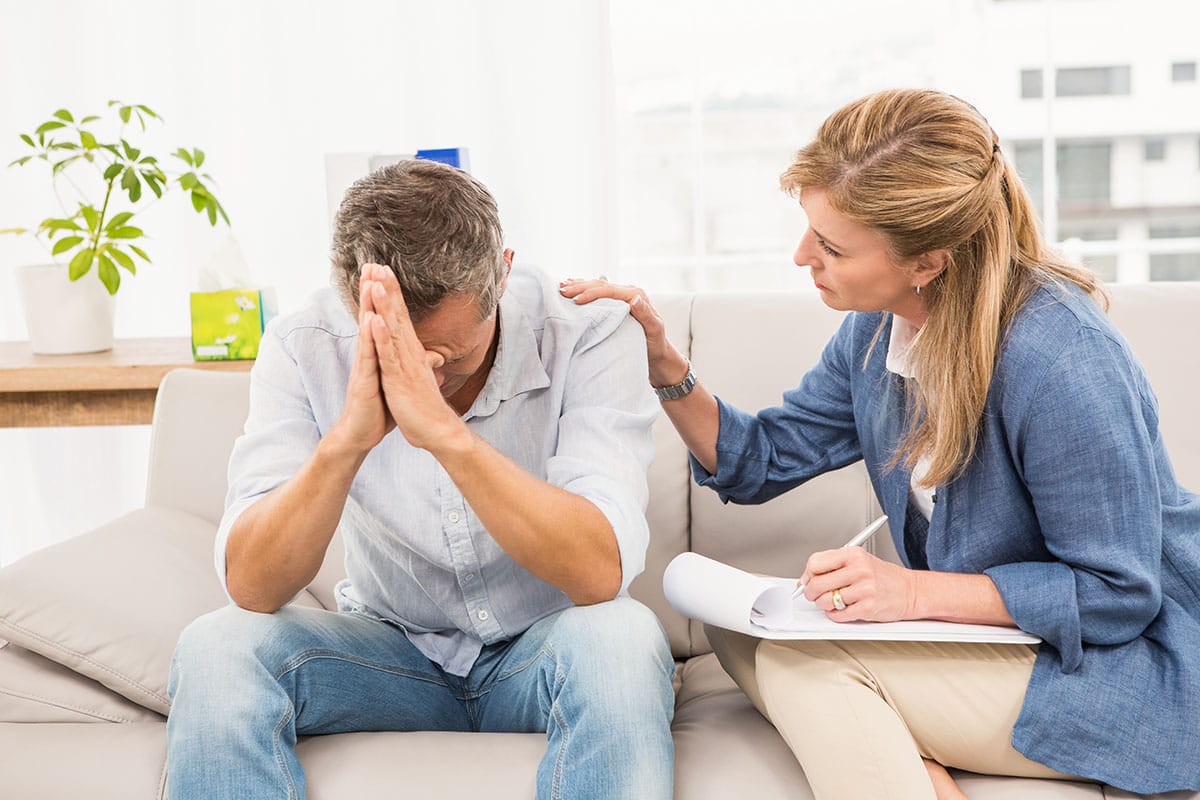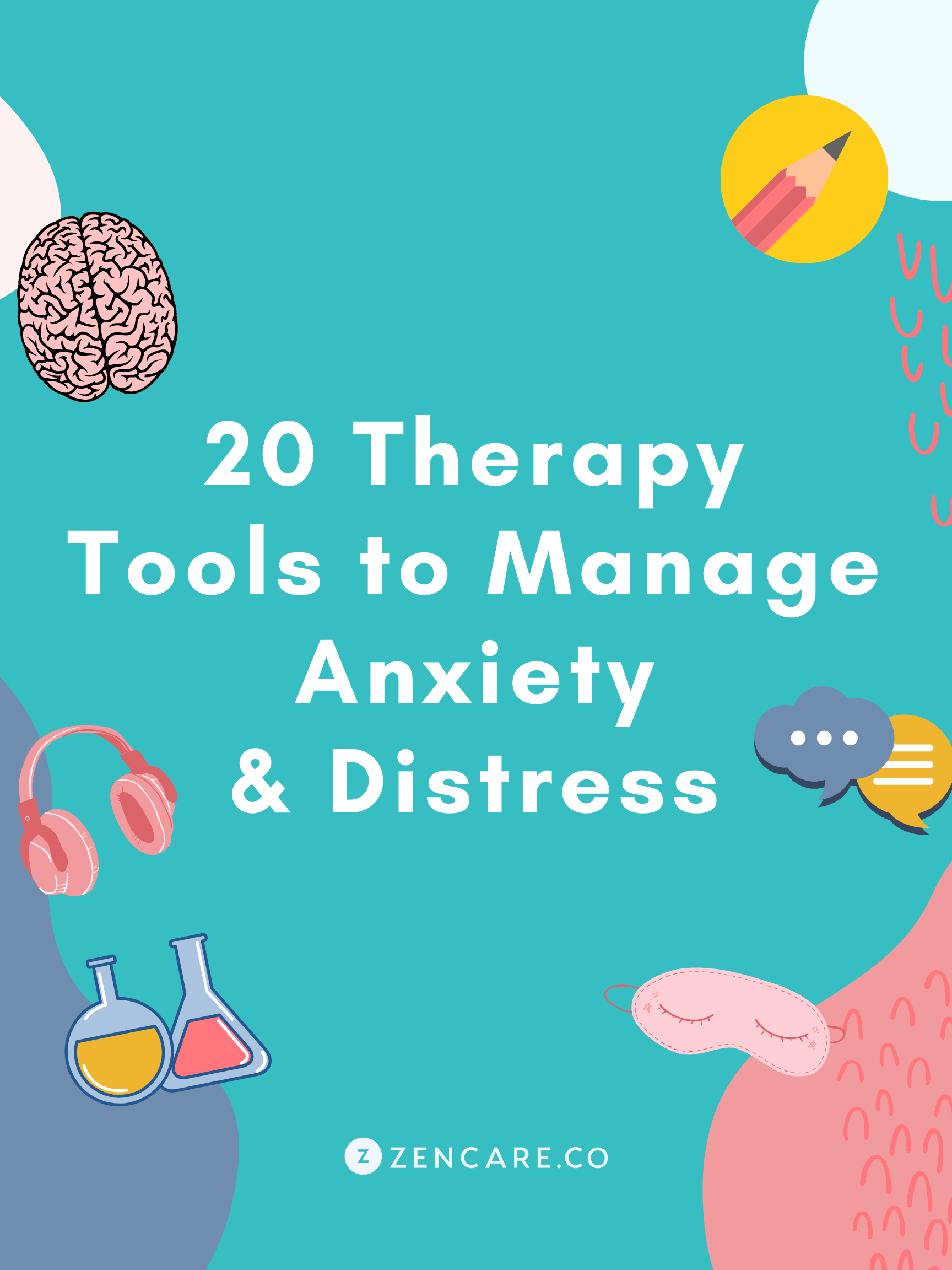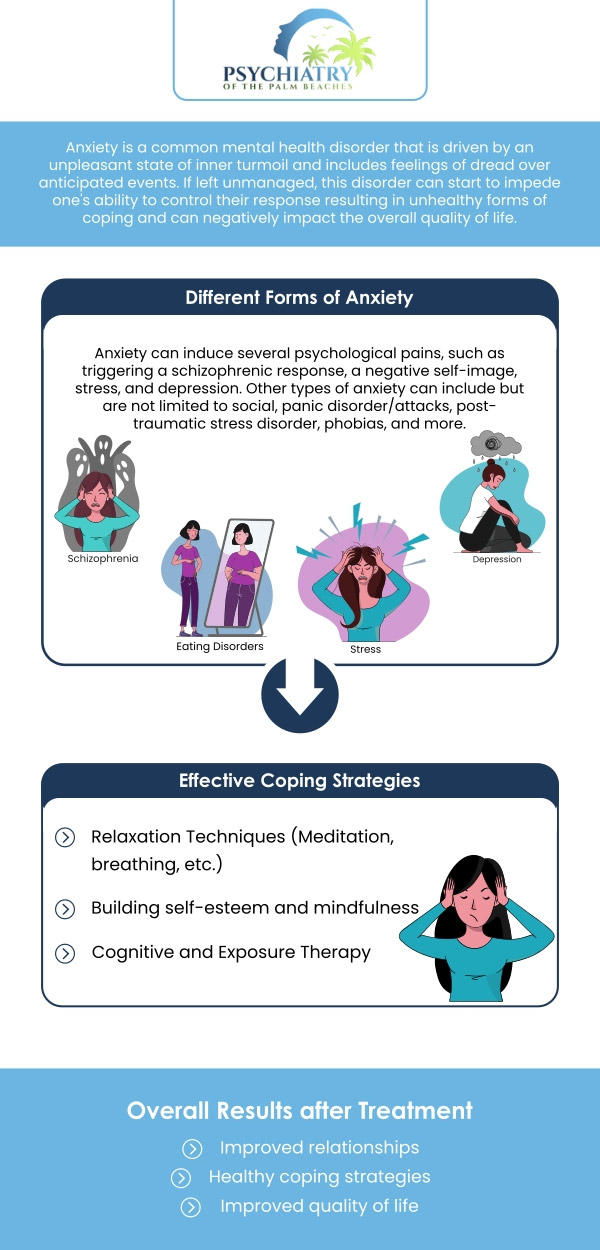Counselling for anxiety disorder: Custom sessions crafted for your situation
Wiki Article
Discovering Various Strategies in Coaching for Anxiousness Condition for Enduring Adjustment
When dealing with anxiousness conditions, it's necessary to check out a range of counseling techniques. Each method supplies unique understandings and devices to help you handle your symptoms effectively. You might find that incorporating methods can generate the most effective outcomes. Nevertheless, understanding the nuances of these approaches is crucial to cultivating lasting adjustment. What happens if the right mix could release a new degree of emotional wellness for you?Recognizing Anxiety Problems: A Quick Introduction
Anxiety conditions, which affect numerous people worldwide, can greatly influence everyday life. You may experience overwhelming feelings of fear or stress that appear uncontrollable. These sensations can result in physical symptoms like an auto racing heart, sweating, or perhaps wooziness. Usual types of anxiety conditions include generalised anxiousness condition, panic attack, and social anxiety problem. Each has one-of-a-kind indications, however they all share a propensity to interrupt your routine and relationships.Understanding the source of your stress and anxiety is essential. It may come from genetics, mind chemistry, or life experiences. Acknowledging your triggers can help you manage your responses much better. It is essential to bear in mind that you're not alone in this battle. Lots of people encounter similar challenges, and looking for aid is a strong action toward feeling better. By learning more about anxiousness conditions, you're already on the path to understanding and managing your problem much more efficiently.Cognitive-Behavioral Treatment: Testing Unfavorable Idea Patterns
In Cognitive-Behavioral Therapy, you'll begin by identifying the negative idea sets off that add to your anxiety. Counseling services for anxiety. Once you recognize these ideas, you'll deal with replacing them with even more favorable choices. With each other, you'll develop effective coping methods to help manage your anxiety in everyday scenarios
Identifying Unfavorable Idea Triggers
When you come across minutes of distress, acknowledging the details triggers behind your negative thoughts can be important in taking care of anxiousness. Start by taking note of scenarios that provoke feelings of concern or worry. Is it a crowded room, an approaching deadline, or a discussion with certain individuals? Write these circumstances in a journal. This will certainly help you recognize patterns in your thinking. Additionally, notification physical sensations that accompany your unfavorable thoughts, like an auto racing heart or rigidity in your breast. By determining these triggers, you acquire understanding into what's sustaining your anxiety. Comprehending these connections is the very first step in challenging those ideas and inevitably restoring control over your psychological reactions.Changing Ideas With Positives
Challenging unfavorable idea patterns is a vital action in transforming your way of thinking and decreasing anxiousness. You might frequently discover on your own trapped in cycles of self-doubt or tragic thinking. Instead of letting these ideas dictate your sensations, technique replacing them with reasonable alternatives or positive affirmations. As an example, when you believe, "I can not handle this," shift it to, "I can take care of obstacles one action at a time." This simple modification can considerably influence your mood. Frequently recognizing and responding to these adverse ideas aids develop a much healthier inner discussion. Bear in mind, it requires time and initiative, yet consistently practicing this technique can lead to long lasting modification, empowering you to face anxiety with renewed self-confidence and strength.Building Coping Techniques Together

Mindfulness and Acceptance-Based Approaches: Cultivating Present-Moment Awareness
As you browse the intricacies of anxiousness, including mindfulness and acceptance-based strategies can substantially boost your capability to grow present-moment understanding. By focusing on the here and now, you'll find that you can observe your ideas and sensations without judgment. This method assists you acknowledge your anxiety without really feeling bewildered by it.Engaging in mindfulness exercises, such as deep breathing, body scans, or directed meditations, permits you to ground on your own in your present experience. Acceptance-based strategies encourage you to welcome your feelings rather than fight versus them. They lose their power over you.Incorporating these practices right into your everyday regimen can change how you react to stress and anxiety when you accept your sensations. You'll establish why not try these out strength and discover to navigate demanding circumstances with higher simplicity. Eventually, growing present-moment understanding lays the foundation for long-term modification, equipping you to lead a much more meeting life.Exposure Treatment: Facing Fears Progressively
Exposure treatment helps you challenge your worries in a steady way, making it much less overwhelming. You'll find out techniques to deal with anxiety-provoking situations detailed, while also constructing coping techniques to handle your reactions (Counseling services for anxiety). This method encourages you to take control and decrease anxiousness over timeProgressive Direct Exposure Techniques
When dealing with anxiousness, gradually facing your anxieties can be a powerful method to gain back control. This technique, called progressive direct exposure, involves slowly subjecting on your own to the scenarios or items that cause your anxiety. Start with less daunting circumstances and gradually work your method as much as even more tough ones. If you're worried of public speaking, you might begin by talking in front of a mirror, after that progress to sharing ideas with a friend, and eventually deal with a small group. Each step helps desensitize you to the fear, building your confidence with time. Remember, it's important to pace yourself and celebrate tiny success as you move with this process, reinforcing your capability to handle stress and anxiety successfully.Structure Coping Methods
Building effective coping strategies is important for managing anxiety, specifically as you challenge your concerns gradually. One powerful approach is exposure therapy, where you begin by facing your worries in a regulated fashion. Begin with less frightening circumstances and slowly function your method up to even more difficult scenarios. This steady direct exposure helps desensitize you to anxiousness activates, making them less overwhelming.Incorporate leisure methods, such as deep breathing or mindfulness, to calm your mind throughout exposure. Track your progression, celebrating tiny success in the process to enhance your confidence. Remember, it's fine to take your time; the goal isn't excellence but constant enhancement. By building these approaches, you'll equip on your own to navigate anxiousness and embrace life extra fully.Psychodynamic Treatment: Uncovering Source of Stress And Anxiety
Psychodynamic treatment explores the subconscious mind, exposing the root triggers of your anxiety. By analyzing your thoughts, sensations, and past experiences, this strategy aids you discover underlying problems and unresolved problems that might add to your present anxiousness. You'll deal with a therapist to check out childhood experiences, connections, and psychological patterns that form your responses today.As you get understanding into these deeper layers of your mind, you'll begin to recognize how past occasions affect your existing behavior. This understanding can result in catharsis, enabling you to refine feelings you could have suppressed.Through the restorative partnership, you can also identify defense systems that might have created with time, offering a clearer path to alter. Eventually, psychodynamic treatment outfits you with the devices to resolve your anxiousness at its core, advertising long-term transformation in your emotional well-being.Integrative and Alternative Techniques: Incorporating Strategies for Greater Efficiency
Incorporating numerous healing strategies can improve your trip toward handling anxiety better (Counseling services for anxiety). By integrating elements from cognitive-behavioral therapy, mindfulness practices, and all natural strategies, you can develop a tailored approach that resolves your special requirements. You may make use of cognitive-behavioral strategies to challenge negative idea patterns while integrating mindfulness exercises to ground on your own in the present moment.Additionally, exploring all natural methods such as yoga or reflection can promote leisure and minimize anxiety signs and symptoms. This blend allows you to establish greater self-awareness and resilience.Experimenting with these varied techniques can aid you find what resonates most with you. Bear in mind, it has to do with locating a synergy that functions, rather than adhering to a single strategy. This integrative technique not just provides prompt relief yet also cultivates long-term abilities for managing stress and anxiety, empowering you to recover control over your life
The Function of Assistance Systems: Building Strength Via Connection
While it may appear that managing stress and anxiety is a singular trip, having a strong support navigate to this website group can play an essential read this post here function in your durability. Bordering yourself with compassionate close friends, family, or support groups produces a risk-free area where you can freely share your experiences and feelings. You advise on your own that you're not alone in this struggle.These partnerships offer motivation and can offer functional coping methods that have actually functioned for others when you attach with others. It's additionally an opportunity to gain perspective; buddies can assist you see circumstances in a different way, minimizing sensations of isolation.Moreover, psychological support promotes a sense of belonging, which can significantly minimize stress and anxiety signs. By leaning on your support system, you can build resilience and take on obstacles better. Bear in mind, getting to out for assistance signifies stamina, and it can make all the difference in your journey towards taking care of stress and anxiety.Often Asked Questions

What Are the Typical Signs And Symptoms of Anxiety Conditions?
You could experience restlessness, tiredness, trouble concentrating, irritability, muscle mass stress, and sleep disturbances. Physical signs can consist of quick heartbeat, sweating, and trembling. Acknowledging these indicators early can aid you seek suitable assistance and therapy.Just How Long Does Therapy Normally Last for Anxiousness Disorders?
Treatment for stress and anxiety conditions commonly lasts anywhere from a couple of weeks to several months. It truly depends upon your individual requirements, progression, and the strategies your therapist uses to help you manage your anxiousness effectively.Can Medication Be Utilized Along With Therapy for Anxiety?
Yes, drug can absolutely be made use of together with therapy for stress and anxiety. Combining both approaches frequently enhances therapy performance, assisting you handle signs while checking out underlying problems with counseling. Always consult your doctor for individualized suggestions.Exist Self-Help Methods for Handling Stress And Anxiety?
Yes, there are several self-help strategies for taking care of anxiousness. You can practice mindfulness, take part in regular workout, keep a balanced diet, develop a regular, and utilize deep breathing strategies to aid minimize anxiety signs and symptoms efficiently.Just how Do I Know if I Required Professional Assistance for Stress And Anxiety?
You need to think about looking for specialist help for anxiety if it interrupts every day life, creates significant distress, or if self-help approaches aren't working. Trust your reactions; connecting can cause better coping skills and assistance. Typical types of anxiety problems consist of generalised anxiety disorder, panic problem, and social anxiety problem. When you encounter minutes of distress, recognizing the details triggers behind your negative ideas can be important in taking care of anxiety. Changing negative thoughts is just the start of managing stress and anxiety effectively. By examining your ideas, sensations, and past experiences, this technique aids you uncover underlying problems and unsettled concerns that may contribute to your present anxiousness. It's also a possibility to get viewpoint; pals can aid you see scenarios differently, decreasing sensations of isolation.Moreover, psychological assistance cultivates a sense of belonging, which can significantly relieve anxiety signs.Report this wiki page